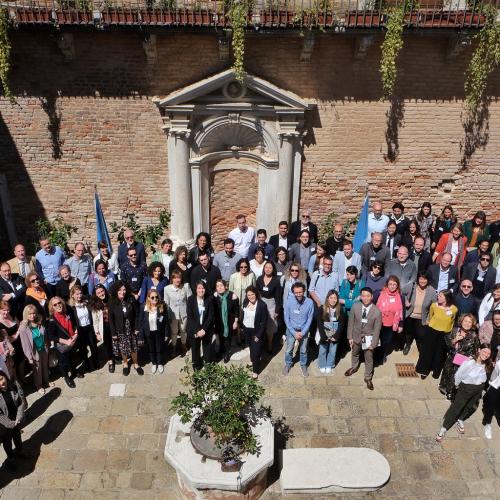
SHELTER : the Scientific Community for sustainable heritage protection
The UNESCO Regional Bureau in Europe, with TECNALIA and ALPHA, convened the final conference of SHELTER, a Horizon 2020 EU-funded project bringing closer scientific community and heritage managers for increasing resilience, reducing vulnerability and promoting safer reconstruction in historic areas. PROCULTHER-NET was invited to discuss the next steps and future collaboration in this field.